
Contents
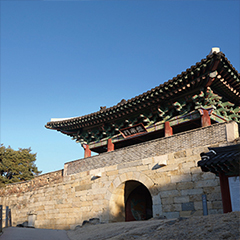
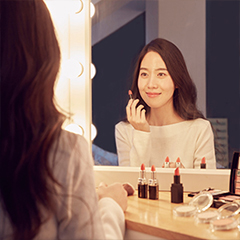




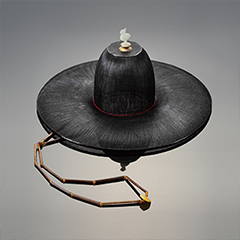
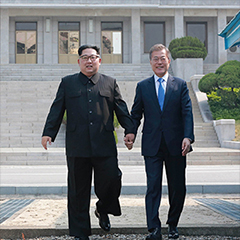
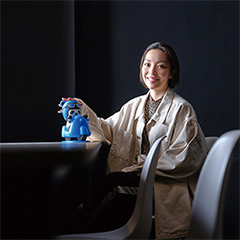
Korean Creator Beloved by China

Media Click · Written by Kim Samuel Photographed by Studio Kenn
DongDong
Korean Creator Beloved by China
The video channel “DongDong” has 800,000 followers and gets more than three million views per video on Bilibili,
one of China’s top ten most online platforms. The People’s Daily of China interviewed her last year as one of its
50 most influential people to mark the 40th anniversary of China’s reform and opening up.
She touches a wide range of topics in her vlog including food, celebrities
and fashion, discussing them like she’s talking to a close friend.
Her presence and growing popularity in China as a creator of Korean content remain unchallenged.
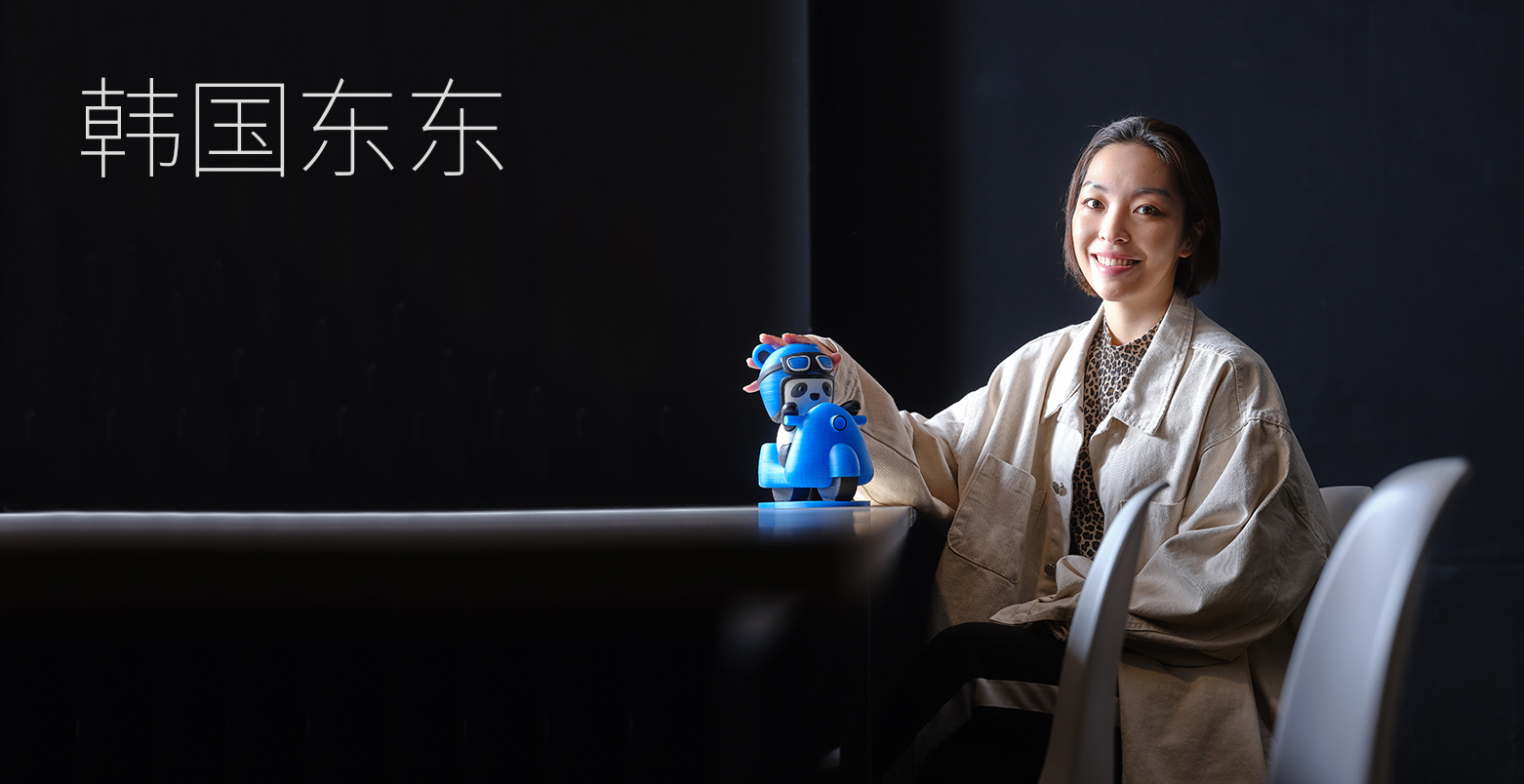
Briefly introduce yourself.
I make videos about Korean and Chinese culture under the nickname “DongDong.” I usually cover ordinary things, sometimes Korean dramas, pop singers, fashion or cosmetics, and at times I try traditional Chinese food that even Chinese people are unfamiliar with or do random interviews with vendors on the street.
How did you name your channel?
“Dongdong” is a Chinese onomatopoeia used as a cute way to call little children. It’s kind of like a pet name so it helps my viewers to see me as a friend. Dongdong also means a “thing,” which came from my initial idea to introduce interesting things about Korea to China.
How did you start in one-person media?
I wanted to start my own business. I registered for the Youth Startup Camp run by the Korean Ministry of Science and ICT and developed my business idea in 2015. At the camp, I met my mentor Kim Jeong-min, someone whom I still work with. While we stayed in touch and discussed ideas, he suggested that I broadcast my own videos and create a unique brand. I thought it was a great idea and wanted to challenge myself as a content creator.
How did your connection with China begin?
I lived in China for five years as a child. This experience allowed me to make many Chinese friends and better understand the people and culture. But when I returned to Korea, I experienced some awkward moments. Whenever I told my Korean friends that I’d lived in China, they showed a negative reaction. They even asked me if it was dangerous or uncomfortable to live there. The Chinese also have negative stereotypes of Koreans. Since Korea and China are both precious to me, I was sad to see people in both countries misunderstand each other. I’m now focused on resolving this issue and eliminating misunderstanding by talking about ordinary things, something that makes me proud.
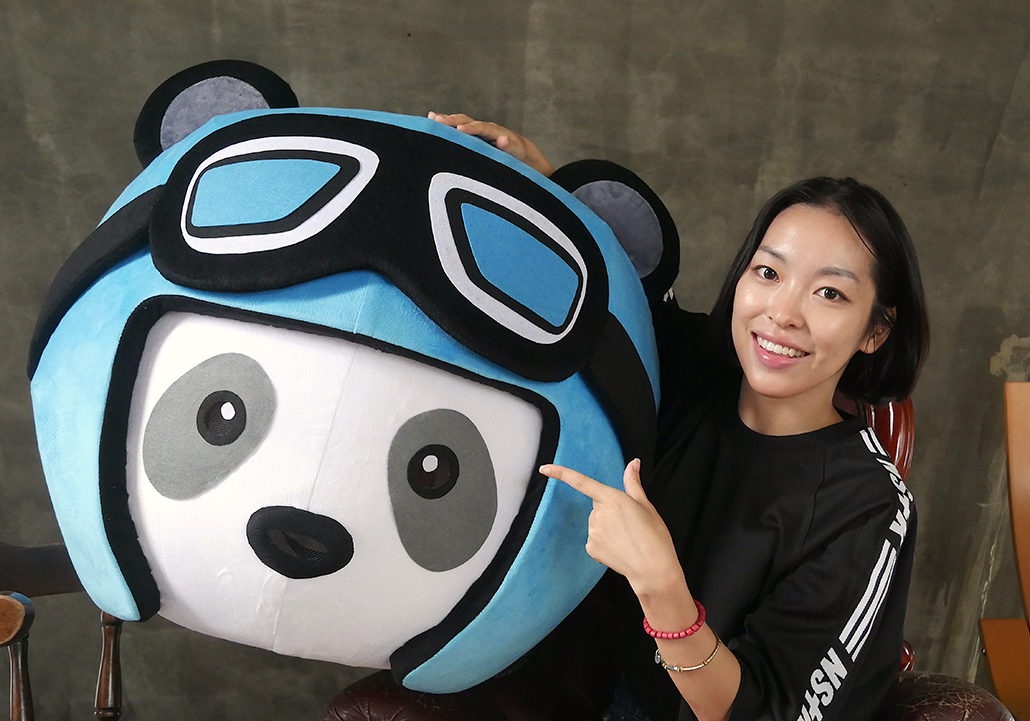 The scooter panda, MotoShionmao, is a DongDong’s mascot beloved by Chinese fans. © DongDong
The scooter panda, MotoShionmao, is a DongDong’s mascot beloved by Chinese fans. © DongDong
How was your first video?
I aired my first video in August 2016 and attracted a lot of viewers. I think people found it interesting to see a different point of view since no Koreans were talking about Chinese culture. It was rare to find someone who bluntly talked about both Korea and China, especially a Korean woman who embraced Chinese culture without reservation. Even Chinese media followed what I was doing. Of course, there was negative feedback on why Koreans talk about Chinese culture. Nonetheless, my fan base kept consistently growing. I built trust with them especially when I kept doing what I did even after political tension grew between both countries.
How is the Chinese video content market different from Korea’s?
The concept of “one-person” media is relatively new in Korea but has been popular in China for a few years. Any field can see drastic change in China, sometimes skipping the transition stage. The same goes for consumption of video content. While in Korea, I saw the pattern of digital access progress from TV to computers and mobile, but China jumped straight into mobile. A large portion of the Chinese population has created a wide range of platforms with each differentiating itself from others with unique content.
What do Chinese audiences find the most interesting about Korean culture?
It’s quite obvious now but K-pop and K-dramas are seeing enormous popularity in China. Chinese are also curious about Korean fashion, as street fashion in Korea offers its own spin on unique styles and is easy to digest. Korean beauty trends are also high in demand. It’s not just Korean traditions that Chinese are interested in but also the ordinary and easily accessible.
Has anything interesting happened to you while making videos?
I broadcast the World Cup soccer preliminaries live between Korea and China in March 2017. Sino-Korean relations were not good at that time and I was afraid that broadcasting in China as a Korean content creator could potentially get me in trouble. Nevertheless, I received a lot of positive feedback and the broadcast itself went pretty well. I also had a great time. Another time, Chinese students in a remote area were learning Korean and about Korean culture through my videos. I made a video after a teacher asked me to do so to encourage students; this made me so proud and exhilarated. I’m not someone who can comment on political issues between the two countries, but I know that I can do many things in ordinary life to act as a bridge between Korean and Chinese culture.
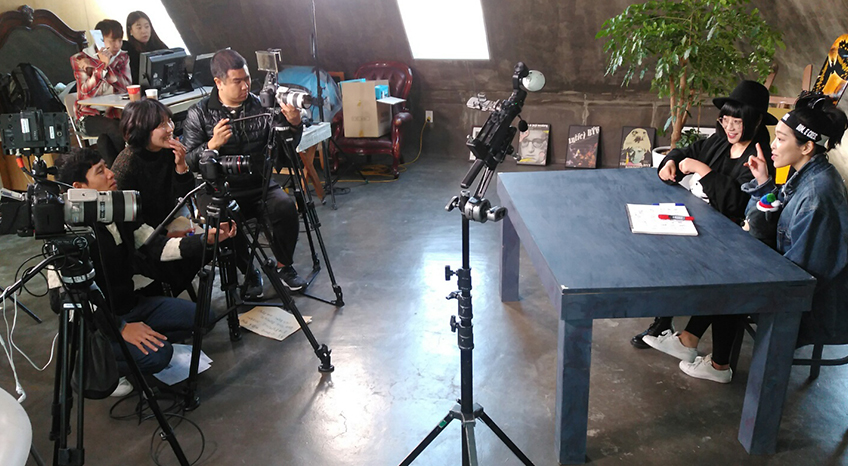
DongDong was part of the PyeongChang 2018 Winter Olympics promotional video. © DongDong
What content are you making as an honorary ambassador of Busan?
We initially produced a promotional video about touristy spots, and then we created content that invited a Chinese viewer to visit Busan under the theme “Living in Busan for a Week.” The video earned 10 million views in China. We’re planning to produce collaborative content with another Chinese viewer in April, which I’m definitely looking forward to. My priority is to get closer to my viewers and make more intimate content through a huge number of views. I have many ideas to accomplish my goal: hanging out at a claw crane machine, having chicken and beer on the Hangang River while chatting with friends, and applying makeup. People feel comfortable and entertained by seeing me talking endlessly and hanging out.
How do you envision your future as a creator?
I’ve wanted to follow my heart and live my life my own way. For this reason, I never get exhausted or sick of what I’m doing. Going further in the future, however, I’d like to develop my content to give something back to society rather than remain a simple tool of entertainment. It’s not easy to say this but I remember one comment that said, “Whenever I have negative feelings about Korea, I watch your videos.” I can’t represent Korea but I’ve learned that having an open and honest talk enables us to connect and understand each other better. That’s how I find pleasure in this job. Honestly, I think this is possible only because I’m an ordinary individual. As I gain more popularity, I feel more responsible for how I deliver it. I’ll stay a friend while not losing my sense of honesty and open communication with my viewers for years to come.
Other Articles



Doribaengbaengi






Korean Creator Beloved by China






